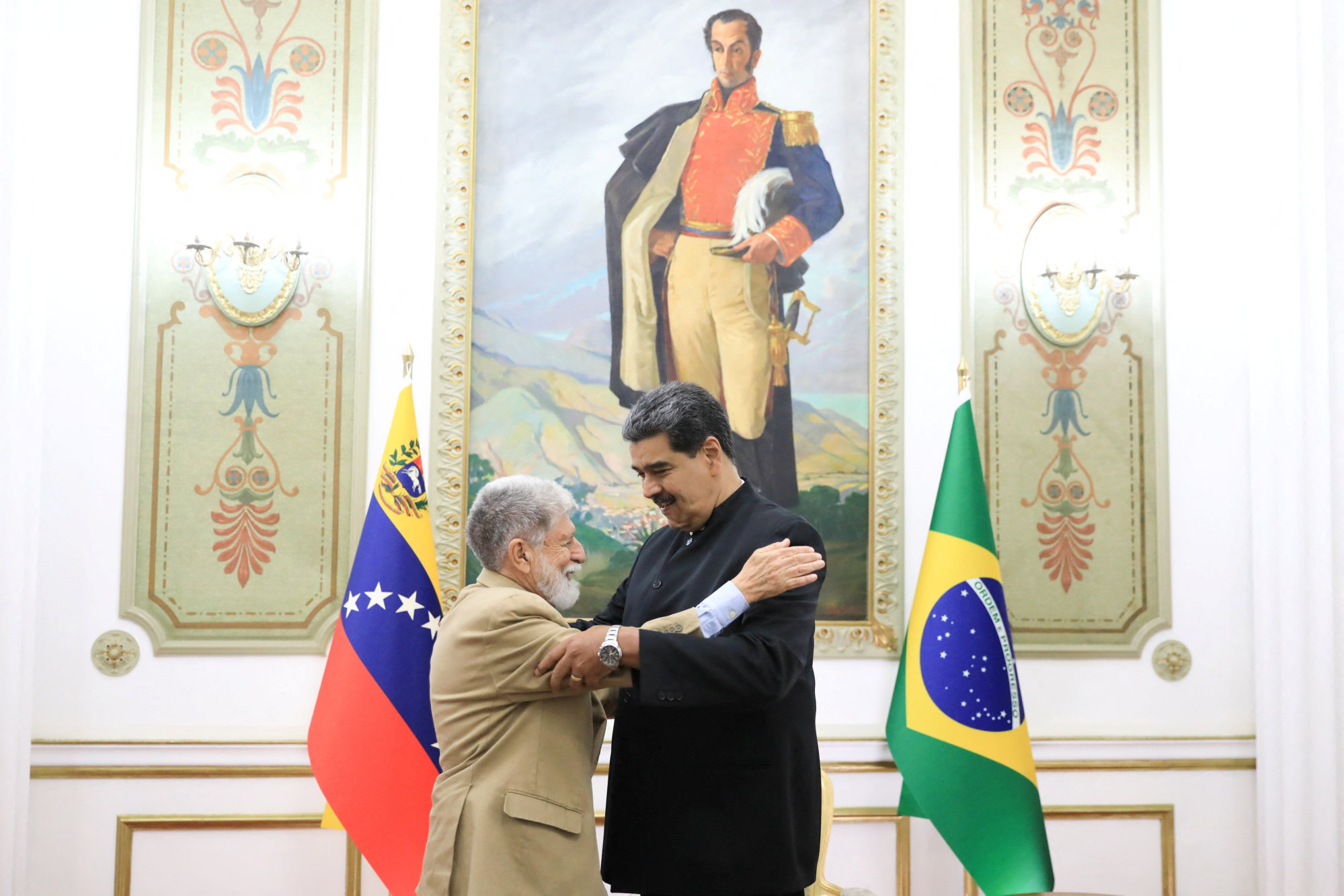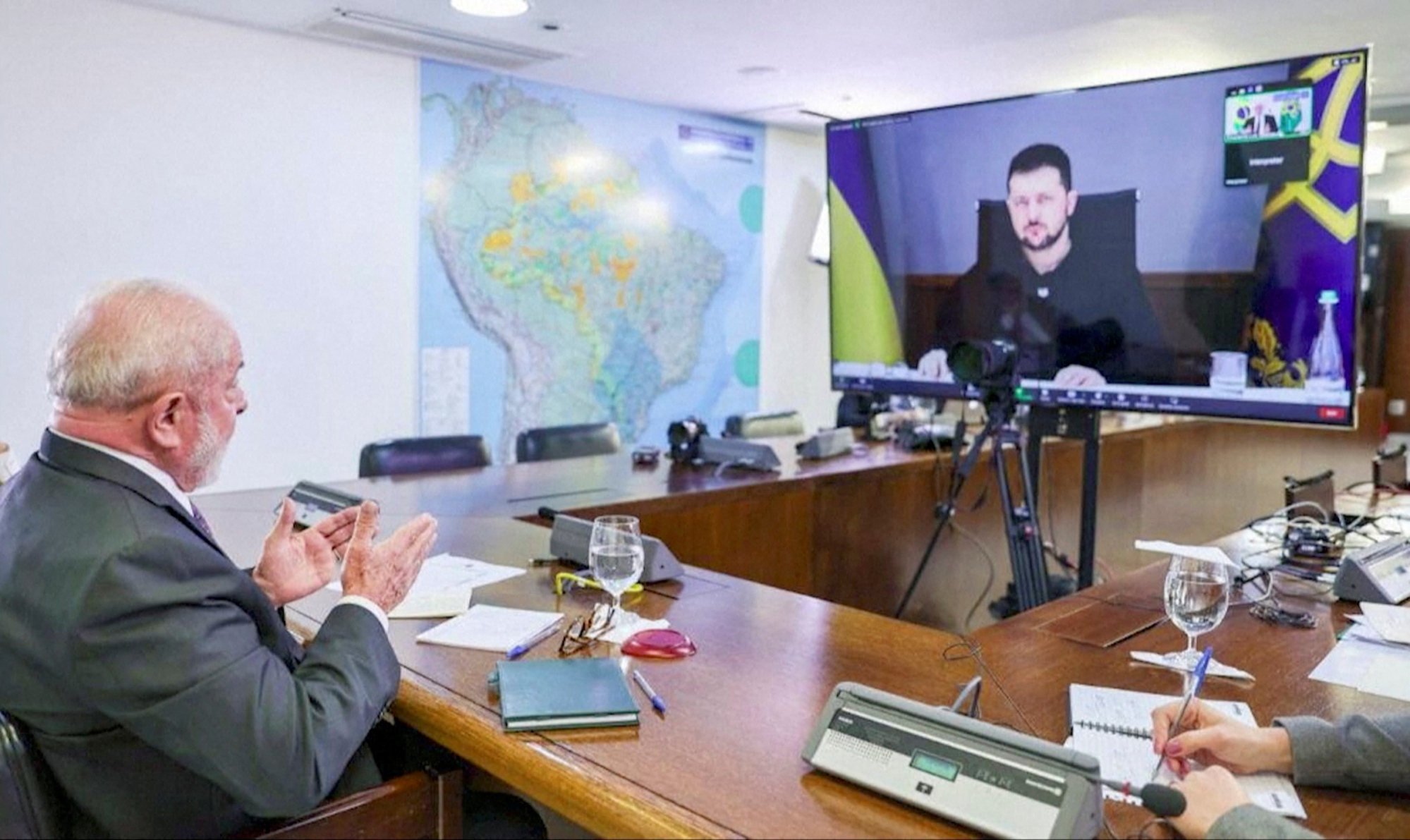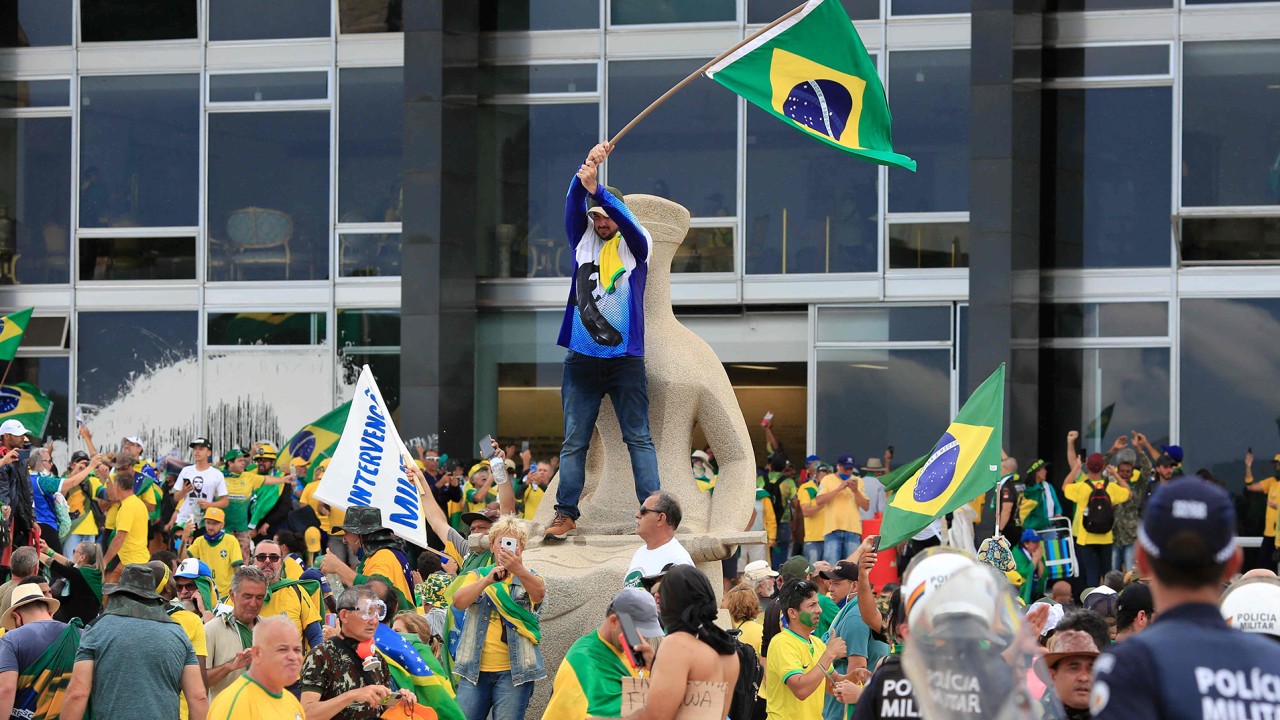
Foreign policy of Brazil’s Lula takes shape, irking West; China visit on cards
- Brazil’s new president appears to be reactivating country’s decades-old principle of peaceful non-alignment
- Recent decisions, like allowing Iranian warships to dock in Brazil, raised US and Europe eyebrows; he is expected in Beijing this month
Brazil’s new President Luiz Inacio Lula da Silva has so far shown little concern about defying consensus in the West on foreign policy – even when it comes to dealing with authoritarian governments.
In recent weeks, Lula’s Brazil sent a delegation to Venezuela, refused to sign a UN resolution condemning Nicaragua’s human rights abuses, allowed Iranian warships to dock in Rio de Janeiro and flatly refused to send weapons to Ukraine, at war with Russia.
On Friday, Beijing’s foreign ministry said Lula will visit China at the end of the month. “At the invitation of Chinese President Xi Jinping, President Luiz Inacio Lula da Silva of the Federative Republic of Brazil will pay a state visit to China from March 26 to 31,” spokesperson Hua Chunying said in a statement.
Lula has expressed a desire to resume cordial ties with China in stark contrast with his far-right predecessor Jair Bolsonaro.
Some of his decisions have raised eyebrows in the US and Europe, but experts said he is reactivating Brazil’s decades-old principle of non-alignment to carve out a policy that best safeguards its interests in an increasingly multipolar world.
Lula, who led Latin America’s largest economy twice between 2003 and 2010, is giving signs of wanting to break Brazil’s international isolation after four years under Bolsonaro.
In his inauguration speech in Congress, he announced a new role for Brazil in the world by resuming “South American integration” and the reconstruction of the “high and active dialogue with the United States, the European Community and China”.

China is Brazil’s top trade partner, with US$152.6 billion in bilateral trade last year. The United States is a distant second, at US$88.8 billion.
Brazil’s foreign policy is based on its 1988 constitution, which establishes non-intervention, self-determination, international cooperation and the peaceful settlement of conflicts as guiding principles.
That involves “talking to all states at all times without making moral judgments, while respecting certain red lines”, said Feliciano Guimaraes, a political scientist at the think tank Brazilian Centre for International Relations. Lula’s red lines are not yet clear, he added.
Last week a delegation from Brazil headed by Celso Amorim, a special adviser to the presidency and former foreign minister, went to Venezuela in the first high-level official visit in years.
Brazil’s Lula puts ‘biggest trading partner’ China among first visits
Diplomatic relations with the neighbouring nation were severed under Bolsonaro. Venezuela’s president Nicolas Maduro is accused of trampling freedom of speech and persecuting political opponents.
Amorim’s team met with both Maduro and the opposition. Maduro posted pictures of the meeting with Amorim on Twitter and praised the “pleasant encounter”.
Brazil intends to promote democracy in Venezuela and push for greater transparency in elections, which is why the delegation met with both sides, according to an official at the foreign ministry not authorised to speak publicly.
Brazil’s representatives at the United Nations in early March declined to sign a Human Rights Council declaration condemning Daniel Ortega’s regime in Nicaragua. Ortega’s government has cracked down hard on dissent, and last month deported and moved to strip Nicaraguan nationality from more than 200 dissidents, drawing international rebuke.
In an interview with Brazilian newspaper O Estado de S. Paulo on March 10, Brazil’s Foreign Minister Mauro Vieira said the declaration was not signed due to “differences in language and approach”. Vieira pointed to Brazil’s historical position of seeking dialogue first.

But the controversy prompted the Brazilian government to later highlight that it was “extremely concerned” about reported human rights violations in Nicaragua and offer to welcome political refugees who have had their nationality stripped.
Lula made diplomacy a priority during his previous presidency, and Brazil was widely respected on the international stage. The BRICS group, composed of Brazil, Russia, India, China and South Africa, was established in 2006.
Lula and Amorim held talks with US presidents and senior Iranian officials in an attempt to build peace, negotiating alongside Turkey to slow Iran’s uranium enrichment. The efforts ultimately failed, and Iran continued enriching uranium.
Brazil court gives ex-president Bolsonaro five days to hand over Saudi jewels
Lula is seeking to reinsert Brazil on the global stage after Bolsonaro, who showed little interest in international affairs beyond asserting his affinity for other right-wing nationalists such as Israel’s Benyamin Netanyahu and Hungary’s Viktor Orban. He reserved special adulation for former US president Donald Trump.
Bolsonaro’s trips abroad were few and far between. Lula quickly showed a different tack, heading to Argentina in the first month of his presidency to meet with his counterpart, Alberto Fernandez.
The returning president also wants to create a group of countries, possibly including India, China and Indonesia, to mediate peace talks between Russia and Ukraine.
Russian Deputy Foreign Minister Mikhail Galuzin said Moscow was studying Lula’s proposal, according to Russia’s Tass news agency in February. He also shared that proposal with Ukraine’s Volodymyr Zelensky in a March 2 video call.
But Lula’s refusal to send weapons to the invaded country has aggravated the West.

“Lula’s government is applying the same principle of autonomy as during his first terms, but the global scenario has changed,” said political scientist Leonardo Paz from the Getulio Vargas Foundation, a university and think tank.
The West’s tensions with Russia and China are sharper. But Russia is a key supplier of fertiliser to Brazil’s soybean plantations, and its exports have become dependent on China.
China surpassed the US as Brazil’s main trading partner in 2009. Their economic relationship has since only strengthened. Between 2007 and 2020, China invested US$66.1 billion in Brazil, according to the Brazil-China Business Council.
“Brazil needs a strategy that allows it to manoeuvre. The principle of non-alignment allows it to have channels open with all states to protect itself,” Guimaraes said.
Brazil showed its will to pursue a foreign policy independent of the US and European countries when it allowed two Iranian warships to dock, Guimaraes added.
The move prompted rebukes from the US and Israel. “Hosting Iranian naval vessels sends the wrong message,” White House Press Secretary Karine Jean-Pierre said during a briefing on March 9.
She added: “But Brazil is a sovereign country and they are allowed to make their decision on how they’re going to engage with another country”.
Another sign of Lula’s budding foreign policy came this week with the announcement that as of October 1 Brazil will reinstitute the requirement that citizens of the US and three other nations obtain tourist visas, which Bolsonaro had scrapped even as the four countries continued demanding visas from Brazilians.
Bolsonaro’s decision had represented “a break with the pattern of Brazilian migration policy, historically based on the principles of reciprocity and equal treatment,” the foreign ministry said in a statement Monday.
Additional reporting by Agence France-Presse


